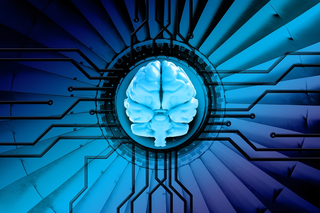Artificial Intelligence
OpenAI and Microsoft Pursue Artificial General Intelligence
Microsoft invests $1 billion in OpenAI to ethically democratize access to AI.
Posted July 23, 2019

OpenAI and Microsoft announced a partnership on July 22, 2019, to build future Azure AI supercomputing technologies in the quest to achieve artificial general intelligence (AGI). As part of the alliance spanning across multiple years, Microsoft plans to invest $1 billion in OpenAI.
OpenAI is an artificial intelligence research company that was founded in 2015 with Sam Altman and Elon Musk as co-chairs and investors, along with backing from Reid Hoffman, Peter Thiel, Amazon Web Services (AWS), Jessica Livingston, and YC Research. The mission of OpenAI is “to ensure that artificial general intelligence benefits all of humanity.”
Also in 2015, Musk donated $10 million to the Future of Life Institute, a research program with worldwide reach with the goal of ensuring that AI is beneficial, not harmful, to humanity. Musk, like the late physicist Stephen Hawking, has warned of the potential existential threat that AI may pose to the future of humanity.
Musk left OpenAI after three years in February of 2018. A year later, what started out as a nonprofit has pivoted into a hybrid partially-for-profit business model. In March 2019, OpenAI created a “capped-profit” company called OpenAI LP in order to attract talent with equity and raise capital. OpenAI LP employs a majority of the staff, while maintaining a nonprofit entity in its overall company structure.
The partnership announcement with Microsoft signals a technological pivot for OpenAI. Cloud computing is hosted services such as storage, software, and servers, delivered remotely over the Internet. The rise of cloud-based computing is one of the technology trends that has contributed to the AI renaissance.
Microsoft Azure is a cloud computing platform that provides infrastructure-as-a-service (IaaS). Other major IaaS cloud computing providers include one of OpenAI’s early investors, AWS (Amazon Web Services). The cloud computing providers with the largest market share estimates include AWS with 34 percent, Microsoft with 14 percent, IBM with 8 percent, Google with 6 percent, and Alibaba with 4 percent, according to a 2018 market research report from Synergy.
As part of the partnership, OpenAI will not only switch to Microsoft Azure, but also jointly create new Azure AI supercomputing technologies, and use Microsoft as a preferred partner in bringing new AI technology to market with the shared emphasis on deploying AI in an ethical, secure, and trustworthy manner.
In recent years, AI is being used to address a panoply of challenges in antibiotic resistance, anxiety, depression, chemobrain, brain scans, IVF fertility treatment, breast cancer detection, precision oncology, vaping, bullying, brain aneurysms, autism research, cholesterol-raising genetic disease, PTSD, epilepsy, orbital space debris, human longevity, material science, physics and many more areas. The partnership between Microsoft and OpenAI will focus on initiatives to address global issues facing humanity such as climate change, education, and healthcare.
“So our mission is to develop artificial general intelligence—broad AI systems that can do a lot of tasks at superhuman level—and then figure out how to deploy those systems in a way that it most benefits the world,” said Sam Altman, CEO of OpenAI in conversation with Satya Nadella, CEO of Microsoft, that was released on video on LinkedIn.
“I think this will be the most important technological development in human history. When we have computers that can really think and learn—that’s going to be transformative.”
“We’re very, very excited about this roadmap ahead,” said Nadella in the same conversation. Nadella is “optimistic about our ability to build this supercomputer and the AGI on top of it,” and views the partnership as a way to “truly democratize access to AI” and provide “AGI to every organization out there.”
Copyright © 2019 Cami Rosso All rights reserved.
References
OpenAI. Retrieved 7-22-2019 from openai.com.
Microsoft [2019, July 22]. “OpenAI forms exclusive computing partnership with Microsoft to build new Azure AI supercomputing technologies [Press Release].” Retrieved from https://news.microsoft.com/




